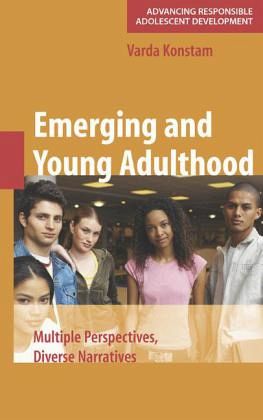Nicht lieferbar

Emerging and Young Adulthood
Multiple Perspectives, Diverse Narratives
Versandkostenfrei!
Nicht lieferbar
Weitere Ausgaben:
This volume reaches beyond facile "Gen X" and "quarterlife crisis" constructs to reveal the many diverse voices of young adults - their attitudes toward life, work, relationships, peers, and identities - and incorporates the diverse perspectives of parents and employers. It is a must-have resource for developmental, school, and counseling psychologists and therapists as well as for researchers and graduate-level students.




